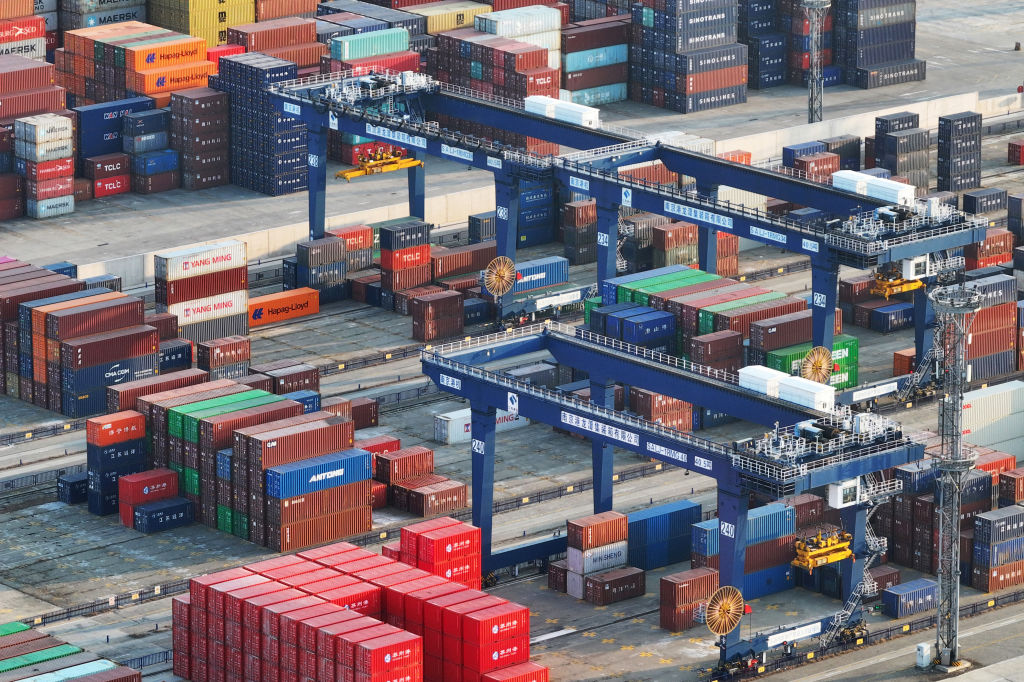His new executive order will postpone levies on de minimis packages until proper systems are in place for formal processing.
President Donald Trump signed a Feb. 5 executive order that postpones tariffs on low-cost imports from China.
Tariffs on low-cost, or de minimis, packages from China will be paused until the Department of Commerce confirms that proper measures, procedures, and systems have been instituted to ensure comprehensive package processing and duty collection.
The president signed several executive orders on Feb. 1 that canceled the decades-old exception for all goods imported from Canada, Mexico, and China.
“We need to protect Americans, and it is my duty as president to ensure the safety of all,” Trump said on social media platform X on Feb. 1.
Digital commerce companies worldwide have exploited the exemption to send duty-free goods worth less than $800 to the United States. Industry experts say this has created a competitive advantage for Chinese e-commerce companies such as Shein and Temu.
Removing the de minimis exemption was expected to flood U.S. Customs and Border Protection (CPB) with low-value shipments requiring formal processing, including inspection and duties.
Last month, the CBP projected that it received more than 1.36 billion de minimis shipments during fiscal year 2024.
Businesses and private carriers were left scrambling as the industry sought more explicit government guidance.
Earlier this week, the U.S. Postal Service (USPS) announced that it was resuming the acceptance of inbound parcels from China and Hong Kong. The USPS initially confirmed it would temporarily stop accepting these shipments after the U.S. government implemented an additional 10 percent tariff on Chinese products.
Due to disruptions rippling through the global supply chain, FedEx suspended its money-back guarantee on foreign shipments.
Robert Khachatryan, CEO and founder of Freight Right Global Logistics, says this is a welcomed pause for international trade for now.
“While any traffic-related pause is good news for now, the broader policy is a wake-up call that such drastic steps need to be phased in and developed in conjunction with those in the logistics sector,” Khachatryan told The Epoch Times.
“Regular trade policy changes going forward should follow the model of clear timelines, suggested improvement of digital customs processing, and the possibility of additional trade facilitation options to avoid such disruption.”Khachatryan says there is little incentive for Chinese and other foreign e-commerce sellers to comply with the rules because there are no penalties for noncompliance.
Formaldehyde-laced flooring and counterfeit goods are some of the noncompliant de minimis products, he noted. However, fentanyl, a powerful synthetic opioid that is the leading cause of death for Americans aged 18–45, is the top issue.
According to a 2023 report by the House Select Committee on the Chinese Communist Party, about half of all de minimis shipments into the United States originated from China.
Trump administration officials have targeted these packages as part of widespread efforts to crack down on the drug trade.
“What the cartels in China have done is to exploit that loophole to smuggle in not just fentanyl but all sorts of drugs,” Peter Navarro, White House senior counselor for trade and manufacturing, said at a Politico Playbook event on Feb. 4.
House Ways and Means Committee Chairman Jason Smith (R-Mo.) praised Trump’s initial decision to revoke the use of de minimis, alluding to his committee’s investigation into China and other countries exploiting the rule to “undermine our trade enforcement tariffs and skirt compliance with U.S. law.”
Rep. Linda Sanchez (D-Calif.), ranking member of the House Ways and Means Trade Subcommittee, estimated that 90 percent of fentanyl currently in the country comes from packages entering the United States under the de minimis policy.
In response to Trump’s wide-ranging executive orders, China’s ministry of finance said it would impose counter-tariffs on various U.S. goods, including agricultural machinery, coal, and liquefied natural gas.

